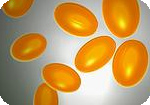| Monday, 12 May 2025 Home • About Us • Contact Us |
|
|
|
You are here:
A recent analysis of 21 saturated fat/heart health studies has shown no link between saturated fat intake and heart disease, adding to the growing body of research showing that saturated fats do not cause cardiovascular disease. There is a slow, but steady admission of the fact that cholesterol is not the primary causative factor of heart disease, that inflammation underlies the development of this disease and that the saturated fat connection to heart disease is dubious at best, and that it is refined carbohydrates that are mostly responsible for bringing about the underlying biochemical conditions in the body out of which systemic diseases such as diabetes and heart disease develop.
Study Details For the current study, researchers examined data from 21 studies that included a total of nearly 348,000 adults. Participants, who were generally healthy to start, were surveyed about their diet habits and then followed for anywhere from 5 to 23 years. Over that time, 11,000 developed heart disease or suffered a stroke. Overall, the researchers found there was no difference in the risks of heart disease and stroke between people with the lowest and highest intakes of saturated fat. The studies that have linked the "Western diet" to an increased heart disease risk most likely simply confirm that sugar and refined carbohydrates are harmful to heart health. Because although the Western diet is high in red and processed meats and saturated fats, it's also alarmingly high in sugar and refined carbohydrates like bread and pasta. The authors stated that dietary efforts to improve cardivascular disease risk should primarily emphasize:
Research Paper Details Siri-Tarino PW, sun Q, Hu FB, Krauss RM. Meta-analysis of prospective cohort studies evaluating the association of saturated fat with cardiovascular disease. Am J Clin Nutr. 2010 Mar;91(3):535-46.
Why you need saturated fats Saturated fats are vital for a healthy diet. They provide a concentrated source of energy and provide the building blocks for cell membranes and a variety of hormones and hormone-like substances. They also act as carriers for the important fat-soluble vitamins A, D, E and K. Dietary fats are also needed for the conversion of carotene to Vitamin A, for mineral absorption, and for a host of other biological processes. Therefore, some saturated fat is needed in the diet for a healthy body. However, as explained previously, it's the unhealthy trans fats that are found in margarine, hydrogenated vegetable oils and processed foods that cause significant health problems. Here are some tips to help ensure you're eating the right fats:
You may also find the other articles on this site regarding cholesterol to be of interest. See the related articles section further below.
Link to this article: Show: HTML Link • Full Link • Short Link
Related Articles:
You must be registered and logged in to comment. |
|
 |
 | |
|
|

 ABSTRACT
ABSTRACT 






